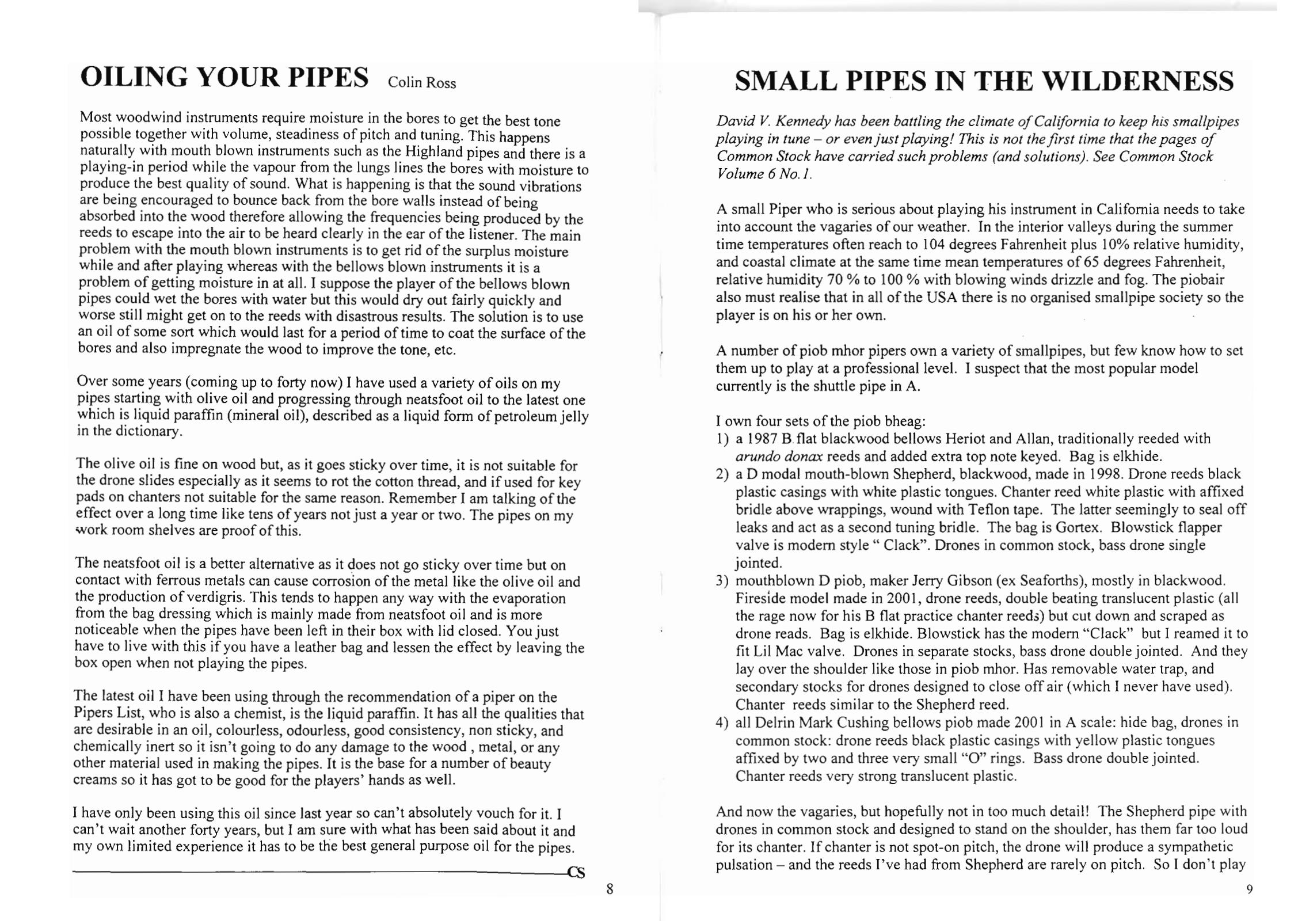Oiling Your Pipes
>

Most woodwind instruments require moisture in the bores to get the best tone possible together with volume, steadiness of pitch and tuning. This happens naturally with mouth blown instruments such as the Highland pipes and there is a playing-in period while the vapour from the lungs lines the bores with moisture to produce the best quality of sound. What is happening is that the sound vibrations are being encouraged to bounce back from the bore walls instead of being absorbed into the wood therefore allowing the frequencies being produced by the reeds to escape into the air to be heard clearly in the ear of the lis- tener. The main problem with the mouth blown instruments is to get rid of the surplus mois- ture while and after playing whereas with the bellows blown instruments it is a problem of getting moisture in at all. I suppose the player of the bellows blown pipes could wet the bores with water but this would dry out fairly quickly and worse still might get on to the reeds with disastrous results. The solution is to use an oil of some sort which would last for a period of time to coat the surface of the bores and also impregnate the wood to improve the tone, etc.
Over some years (coming up to forty now) I have used a variety of oils on my pipes starting with olive oil and progressing through neatsfoot oil to the latest one which is liquid paraffin (mineral oil), described as a liquid form of petroleum jelly in the dictionary. The olive oil is fine on wood but, as it goes sticky over time, it is not suitable for the drone slides especially as it seems to rot the cotton thread, and if used for key pads on chanters not suitable for the same reason. Remember I am talking of the effect over a long time like tens of years not just a year or two. The pipes on my work room shelves are proof of this.
The neatsfoot oil is a better alternative as it does not go sticky over time but on contact with ferrous metals can cause corrosion of the metal like the olive oil and the production of ver- digris. This tends to happen any way with the evaporation from the bag dressing which is mainly made from neatsfoot oil and is more noticeable when the pipes have been left in their box with lid closed. You just have to live with this if you have a leather bag and lessen the effect by leaving the box open when not playing the pipes.
The latest oil I have been using through the recommendation of a piper on the Pipers List, who is also a chemist, is the liquid paraffin. It has all the qualities that are desirable in an oil, colourless, odourless, good consistency, non sticky, and chemically inert so it isn’t go- ing to do any damage to the wood , metal, or any other material used in making the pipes. It is the base for a number of beauty creams so it has got to be good for the players’ hands as well. I have only been using this oil since last year so can’t absolutely vouch for it. I can’t wait another forty years, but I am sure with what has been said about it and my own limited experience it has to be the best general purpose oil for the pipes.
